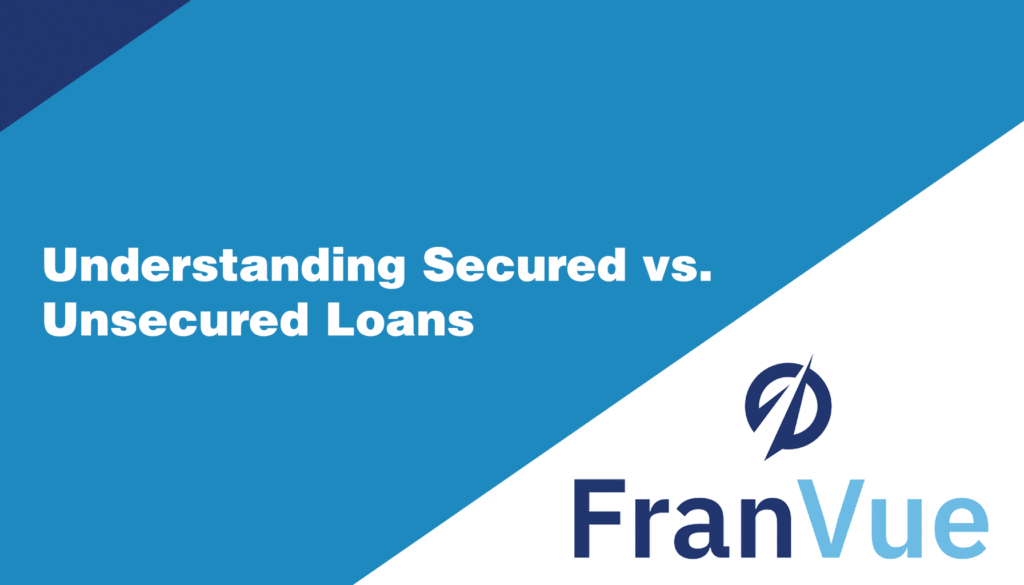Navigating the world of loans can be complex, especially when determining which type is best suited for your needs. Two primary categories dominate the lending landscape: secured and unsecured loans. Let’s delve into their distinctions and implications from a franchise consultant’s viewpoint.
Main Distinctions
· Secured Loans: These loans are anchored by an asset, serving as a safety net for lenders. If a borrower defaults, the lender has the right to claim this asset. Common examples include home mortgages and vehicle loans.
· Unsecured Loans: These loans are not tied to any collateral. Instead, they rely on the borrower’s credit history and financial standing. Personal loans and many credit cards fall under this category.
Deep Dive: Secured Loans Secured loans necessitate an asset as collateral, which can range from real estate properties to vehicles or even savings accounts.
Varieties of Secured Loans:
· Home mortgages and equity loans
· Vehicle financing options
· Secured credit cards or lines of credit
· Loans backed by savings or deposits
Advantages:
· Competitive Interest Rates: Typically, secured loans offer more favorable rates due to the reduced risk for lenders.
· Accessibility: Those with less-than-perfect credit might find it easier to obtain a secured loan.
· Higher Loan Amounts: The borrowing limit is often higher, given the collateral’s value.
· Extended Repayment Durations: Loans like mortgages allow for prolonged repayment schedules.
Drawbacks:
· Risk of Asset Loss: Defaulting could result in the loss of the collateral.
· Potential for Higher Long-Term Costs: Extended repayment might lead to more interest paid over time.
· Deep Dive: Unsecured Loans Unsecured loans are primarily based on the borrower’s creditworthiness.
Advantages:
· No Collateral Risk: Borrowers won’t risk losing personal assets.
· Swift Processing: Often, these loans have a faster approval process.
· Versatility: Suitable for diverse needs, from debt consolidation to emergency expenses.
Drawbacks:
· Stricter Eligibility: Credit history plays a significant role in approval.
· Elevated Interest Rates: Lenders might charge more due to the increased risk.
Which Loan Aligns With Your Needs?
Opt for a secured loan if:
· You’re making a significant purchase like a franchise.
· Your credit doesn’t qualify you for favorable unsecured loan rates.
· You’re undertaking a substantial debt that necessitates extended repayment.
An unsecured loan might be ideal if:
· You’re consolidating smaller debts.
· You’re seeking funds for varied purposes.
Credit Implications
Both loan types can influence your credit score. Applying for any loan can cause a temporary drop in your score due to the lender’s hard inquiry. However, consistent, timely payments can bolster your credit over time.
Consequences of Defaulting
While secured loans come with the evident risk of collateral loss, defaulting on an unsecured loan can severely damage your credit. Lenders might also pursue legal actions, asset liens, or wage garnishments.
Building Credit:
Secured vs. Unsecured Both loan types can aid in credit building, provided payments are made punctually.
In Conclusion
Your loan choice significantly impacts your financial journey. Whether secured or unsecured, it’s imperative to assess your needs, risks, and benefits before making a decision. As a franchise consultant at FranVue, understanding these nuances can be pivotal in guiding franchisees towards informed financial choices.


